Brownstone Institute
President von der Leyen’s WEF Speech is Sheer Manipulation
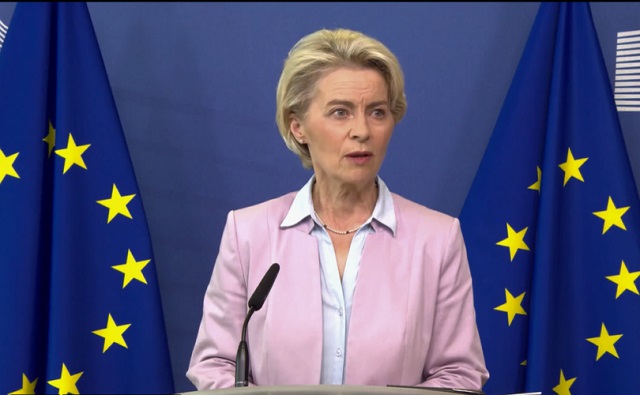
From the Brownstone Institute
BY
If there is one thing the past few years have taught us, it is that the people applying “misinformation” rules (e.g. the “fact-checkers”) are often the ones lying to or deceiving the public
In a recent address to the World Economic Forum, EU President Ursula von der Leyen, citing the WEF’s annual “global risk report,” pointed to “misinformation and disinformation” as the greatest risks facing the global business community at this time. These risks are “serious,” in her view, “because they limit our ability to tackle the big global challenges we are facing” – climate, demographics and technological changes, and “spiraling regional conflicts and intensified geopolitical competition.”
The answer to the risks of “misinformation” and “disinformation,” in President von der Leyen’s estimation, is for “businesses and governments” to “work together” to get a grip on the problem. Though von der Leyen does not use the word “censorship” in her address, the example she offers of businesses and governments “working together” is the European Digital Services Act, which imposes a legal requirement upon large online platforms like X/Twitter and Meta/Facebook to censor misinformation, disinformation, and hate speech.
Few would question the claim that artificial intelligence, bots, and various malicious actors can leverage social media and other digital “information highways” to confuse, disorient, and manipulate citizens. However, the President of the European Commission, like any smart politician, knows how to milk a crisis to expand her own power, and her January 16th speech at Davos was a tour de force in crisis manipulation.
She could have used her unique position of leadership to underline the true nature of the threat of disinformation, which is a threat coming from all directions – not just from malicious private actors, but from governments that run “information” campaigns designed to harness people’s primal instincts, most notably fear and solidarity, in support of their preferred policies. Ms von der Leyen could have used her platform to caution her audience about the dangers of handing the keys to the internet to a handful of poweful actors with an evident interest in silencing their critics.
But instead, acting in true political form, President von der Leyen presented an utterly self-serving, one-sided, and dishonest picture of the risks of “disinformation” and “misinformation,” reminiscent of the musings of a dictator. The general narrative she conveyed was that the purveyors of “misinformation” are throwing a spanner in the works of global cooperation, but that if businesses and governments just pull together, they can nip this avalanche of disinformation and misinformation in the bud. This narrative is wrong in so many ways:
- This naïve view of “us the world’s heroic business and political elite” and “them the nasty disinformation-producers” distracts attention away from the rather inconvenient fact that disinformation and misinformation show up on all sides of the political spectrum. There is no “global team” that can safely be entrusted with the task of quashing “misinformation.” If there is one thing the past few years have taught us, it is that the people applying “misinformation” rules (e.g. the “fact-checkers”) are often the ones lying to or deceiving the public, whether on the origins of the coronavirus, the safety and efficacy of mRNA vaccines, or some other issue of public importance.
- Given the fact that “misinformation” and “disinformation” is spread all over the political spectrum and not concentrated in the hands of a few easily fingered malicious actors, in practice the very perception of what counts as “misinformation” and “disinformation” often depends on one’s political interests and biases, and is not a morally or politically neutral category.
- Dictators and tyrants are quick to accuse their critics of “misinformation” and “disinformation” and to blur the dividing line between reasonable dissent and malicious “disinformation”- clearly, they recognize that the term has value as a vehicle of propaganda. Repeatedly seeking to silence one’s critics under the pretext that they are threatening democracy with “disinformation” is proper to dictators, not governors bound by principles of democratic accountability. A democratic ruler accepts that their policies may be publicly challenged, even if this slows down their implementation. A tyrannical ruler, on the other hand, is impatient with criticism and would prefer to just shut up their critics.
- Finally, the appeal to solidarity and cooperation in the fight against disinformation is rather disingenuous, to say the least, given that the example of public-private cooperation given by von der Leyen conspicuously involves coercive intrusion by EU bureaucrats in the moderation policies of online platforms. Nobody would suggest that online platforms are run by angels, or that their moderation policies are immune to criticism, but the whole narrative of “Let’s work together for the common good” falls to pieces when the main tool of “cooperation” is a piece of legislation (Digital Services Act) that enthrones a political elite and their employees as the coercive arbiters of truth and falsehood on the internet. This is a naked power grab by the European Commission and EU member-State governments, not “working together” with businesses to combat disinformation.
Republished from the author’s Substack
Brownstone Institute
The Predictable Wastes of Covid Relief

From the Brownstone Institute
BY
As documented in a 2023 report from the Electronic Privacy Information Center, more than seventy local governments used ARPA funds to expand surveillance programs in their communities
If you ever had the vague sense that Covid relief funding worked in a manner akin to US aid packages in failed Middle Eastern dictatorships, your instincts weren’t wrong.
First off, there were cases of just outright fraud nearing the $200 billion mark with drug gangs and racketeers collecting Covid unemployment benefits from the US government, with some recipient fraudsters not even having the common decency of being honest American fraudsters.
Even worse, though, were some legitimate uses of Covid funds that actually counted as legitimate despite being laughably frivolous or clearly unrelated to nominal goals connected to public health or helping communities deal with the economic impact of the virus – or, more accurately, the lockdowns.
One of the most should-be-satirical-but-actually-real examples of a legitimate use of Covid cash was a researcher at North Dakota State University being awarded $300,000 by the National Science Foundation through a grant funded at least in part through the American Rescue Plan Act of 2021 to aid her in her 2023 efforts to reimagine grading in the name of equity. (If none of that makes sense, please don’t hurt yourself with mental pirouettes.)
Other more mundane projects pertained to prisons and law enforcement using Covid relief money for purposes that extended well-beyond simply paying salaries or keeping the lights on. In 2022 The Appeal and The Marshall Project reported on how large sums of Covid money went to prison construction and expansion projects and to outfit police departments with new weaponry, vehicles, and canines. Regardless of how you feel about law enforcement or our prison system, these probably did little to stop the spread of Covid or keep out-of-work bartenders afloat while public health bureaucrats consulted horoscopes or goat entrails or their equally useful models to divine the proper time to let businesses reopen safely at half-capacity to diners willing to wear a mask between bites but too afraid to leave their homes.
Yet, of course, that didn’t stop people from trying to make the case that these expenditures absolutely were essential to slowing the spread. Often coming off like precocious children explaining to their parents how a new puppy would help teach them responsibility or an overpriced pair of sneakers would facilitate their social-emotional development by ensuring the cool kids would like them, local sheriffs and city managers were reported as claiming prison expansions could help prisoners social distance from each other, new tasers would help officers social distance from suspects, and new vehicles would allow officers to take their cars home with them rather than share one with another officer who might end up contaminating it with their Covid cooties.
But even worse than the funds that were outright plundered or just snatched up as part of a cash grab were those that were used on projects that helped further erode the freedoms of American citizens.
As documented in a 2023 report from the Electronic Privacy Information Center, more than seventy local governments used ARPA funds to expand surveillance programs in their communities, purchasing or licensing gunshot detection systems, automatic license plate readers, drones, social media monitoring tools, and equipment to hack smartphones and other connected devices.
Sometimes EPIC reported that this was done with little, if any, public debate over the civil liberties and privacy concerns inherent to these tools. In one case from a town in Ohio, approval for ARPA-funded ALPRs – cameras that can create a searchable, time-stamped history for the movements of passing vehicles – came after only a 12-minute presentation by their police chief.
Similarly, schools also likely used money from ARPA, as well as the 2020 Coronavirus Aid, Relief, and Economic Security Act, for their own surveillance purposes, although documentation of how schools used their Covid money is said to be somewhat spotty at best.
Vice News in 2021 reported how Ed Tech and surveillance vendors such as Motorola Solutions, Verkada, and SchoolPass marketed their products as tools to help reduce the spread of Covid and allow schools to reopen safely.
Some attempts such as Vice’s description of SchoolPass presenting ALPRs as a means to assist with social distancing come off like police departments explaining the social distancing benefits of tasers.
Others, however, such as Motorola plying schools with lists of behavioral analysis programs that “monitor social distancing violations” and room occupancy while “automat[ing] the detection of students who are not wearing face masks,” seem to offer a glimpse of the dystopian future into which we are heading – as do the other surveillance tools bought with Covid cash.
Maybe at some point Disease X, about which our ruling class has been warning us, will hit and the additional drones, ALPRs, and social media monitoring tools bought by the law enforcement agencies reported on by EPIC will be used to monitor adults for social distancing violations and automatically detect who isn’t wearing a mask. Maybe those tools will just be used to keep a digital notebook of the daily activities of everyone while police reassure us that they promise only to look at it when they really really need to.
In either case, though, if you currently have the vague sense that post-Covid America is a little more like a Chinese surveillance state than in the Before Times, your instincts are dead-on.
Brownstone Institute
Book Burning Goes Digital

From the Brownstone Institute
BY
In March 2021, the Biden White House initiated a brazenly unconstitutional censorship campaign to prevent Americans from buying politically unfavorable books from Amazon.
The effort, spearheaded by White House censors including Andy Slavitt and Rob Flaherty, began on March 2, 2021, when Slavitt emailed Amazon demanding to speak to an executive about the site’s “high levels of propaganda and misinformation and disinformation.”
Their subsequent discussions remain unknown, but recently released emails from the House Judiciary Committee reveal that the censors achieved their intended result. Within a week, Amazon adopted a shadow ban policy.
Company officials wrote in internal emails, “The impetus for this request is criticism from the Biden administration about sensitive books we’re giving prominent placement to, and should be handled urgently.” They further clarified that the policy was “due to criticism from the Biden people,” presumably meaning Slavitt and Flaherty.
At the time, “vaccine misinformation” was parlance for inconvenient truths. Five months after the Amazon censorship crusade, Twitter banned Alex Berenson at the Government’s behest for noting that the shots do not prevent infection or transmission. Senator Elizabeth Warren (D-MA) favorably cited his Twitter ban in a September 2021 letter to Amazon calling for increased censorship of books.
A similar process occurred at Facebook. Mark Zuckerberg wrote in internal emails that the platform decided to ban claims related to the lab-leak theory in February 2021 after “tense conversations with the new Administration.” Facebook executive Nick Clegg similarly wrote that the censorship was due to “pressure from the [Biden] administration and others to do more.” Another internal Facebook email from August 2021 wrote that the company had implemented new “misinformation” policies “stemming from the continued criticism of our approach from the [Biden] administration.”
Not only does the Biden regime’s call for de facto book bans lead to the suppression of true information regarding lockdowns, vaccine injuries, and the lab-leak theory; it was also a clear violation of the First Amendment.
The Supreme Court weighed in on a nearly identical case over sixty years ago.
In 1956, the Rhode Island legislature created a “Rhode Island Commission to Encourage Morality in Youth.” Like “public health” or “inclusivity,” the innocuous language was a Trojan Horse for censorship.
The Commission sent notices to bookshops and book dealers that potentially violated Rhode Island’s obscenity laws. The book dealers challenged the constitutionality of the Commission, and the case made its way to the Supreme Court in Bantam Books v. Sullivan.
The New York Times’ description of the case from 1962 could be transposed to a modern article on the Amazon Files, but The Gray Lady has deemed the news unfit to print and has ignored the revelations entirely.
The challengers argued that the Commission acted “as a censor” while the Government “contended that its purpose was only to educate people,” the Times explained. The Government, desperate to maintain its benevolent facade, insisted its “hope [was] that the dealer would ‘cooperate’ by not selling the branded books and magazines.”
But the Government’s call for “cooperation” was a thinly veiled threat. The Commission did not just notify the booksellers; they also sent copies of the notices to the local police, who “always called dealers within 10 days of the notice to see whether the offending items had been withdrawn,” according to the book dealers.
“This procedure produced the desired effect of frightening off sale of the books deemed objectionable,” a book dealer told The Times. They complied, “not wanting to tangle with the law.”
The Supreme Court ruled 8-1 that the Committee’s reports violated the Constitutional rights of the book dealers. Justice William O. Douglas wrote in a concurring opinion: “This is censorship in the raw; and in my view the censor and First Amendment rights are incompatible.”
Here, we again see censorship in the raw; bureaucratic thugs, using the power of the US federal government, call for the suppression of information that they find politically inconvenient. They hide behind the innocuous language of “public health” and “public-private partnerships,” but the Leviathan’s “requests” carry an implicit threat.
As we wrote in “The Censors’ Henchmen,” the censorship demands from White House lackeys Rob Flaherty and Andy Slavitt are like mobsters’ interrogations. Just months after the Amazon demands, Flaherty wrote to Facebook, “We are gravely concerned that your service is one of the top drivers of vaccine hesitancy – period.” Then came the demands: “We want to know that you’re trying, we want to know how we can help, and we want to know that you’re not playing a shell game…This would all be a lot easier if you would just be straight with us.”
In other words, we can do this the easy way or the hard way. Nice company you have here – it would be a shame if something happened to it.
When companies refused to comply, Biden’s henchmen responded with scorn. Facebook ignored one censorship request, and Flaherty exploded: “Are you guys fucking serious? I want an answer on what happened here and I want it today.”
Failure to comply would threaten Amazon’s substantial government contracting operations. In April 2022, Amazon received a $10 billion contract from the NSA. Later that year, the US Navy granted Amazon a $724 million cloud computing contract, and the Pentagon awarded Amazon an additional $9 billion in contracts. Amazon also has ongoing contracts with the CIA that could be worth “tens of billions” of dollars.
“Cooperation” is a prerequisite for these lucrative agreements. Sixty years ago, the Court recognized the threat that Government demands for “cooperation” posed to liberty in Bantam Books. Ten years later, the Court held in Norwood v. Harrison that it is “axiomatic that a state may not induce, encourage or promote private persons to accomplish what it is constitutionally forbidden to accomplish.”
Since then, skyrocketing government spending and public-private partnerships have further blurred the line between state and private persons at the cost of our liberties.
The recent Amazon revelations add to the censors’ parade of horribles that have been uncovered in recent years. The Supreme Court will rule on the crux of the battle between free speech and Biden’s cosa nostra next month in Murthy v. Missouri.
Meanwhile, the revelations keep pouring in, adding to what we know but still concealing the fullness of what might actually have been happening. Adding to the difficulty is that the revelations themselves are not being widely reported, raising serious questions concerning just how much in the way of independent media remains following this brutal crackdown on free speech that took place with no legislation and no public oversight.
-

 COVID-191 day ago
COVID-191 day agoAstraZeneca withdraws COVID vaccines worldwide amid lawsuits alleging severe harm
-

 National2 days ago
National2 days agoTaxpayers Federation presents Teddy Waste Awards for worst government waste
-
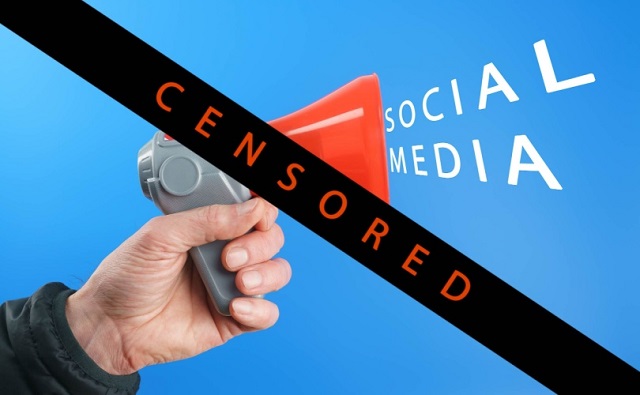
 Censorship Industrial Complex1 day ago
Censorship Industrial Complex1 day agoInternet censorship laws lead a majority of Canadians to believe free speech is threatened: poll
-
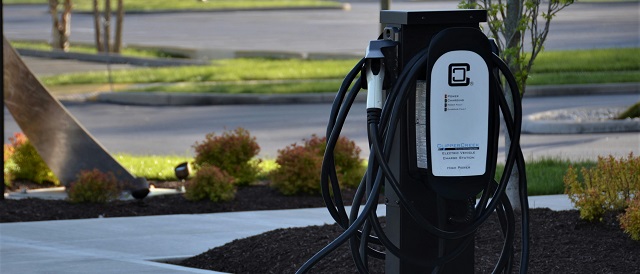
 Automotive2 days ago
Automotive2 days agoNew Analysis Shows Just How Bad Electric Trucks Are For Business
-
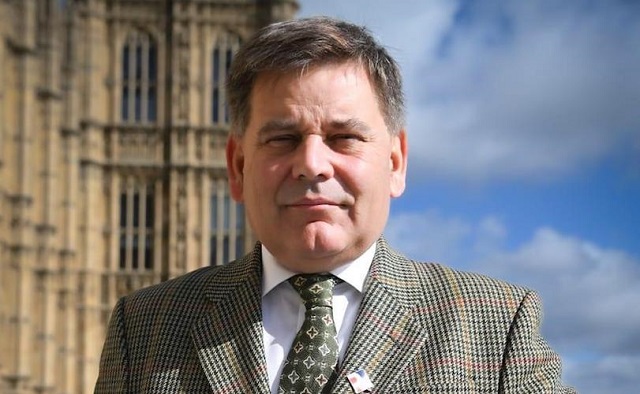
 COVID-1919 hours ago
COVID-1919 hours agoBritish MP Andrew Bridgen gives powerful speech on ‘scandal’ of excess deaths after COVID jab rollout
-
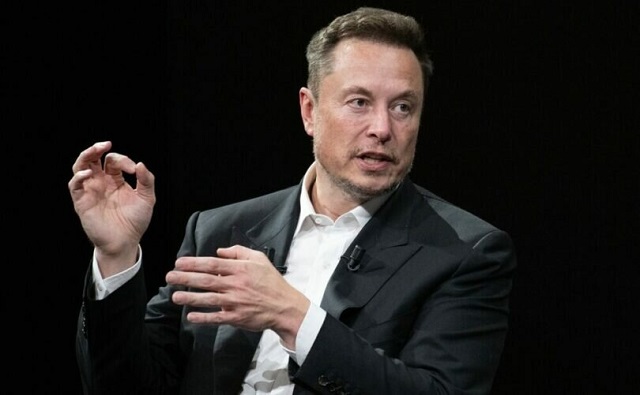
 COVID-192 days ago
COVID-192 days agoElon Musk’s X will help fund COVID shot critic’s ongoing legal battle against Canadian university
-
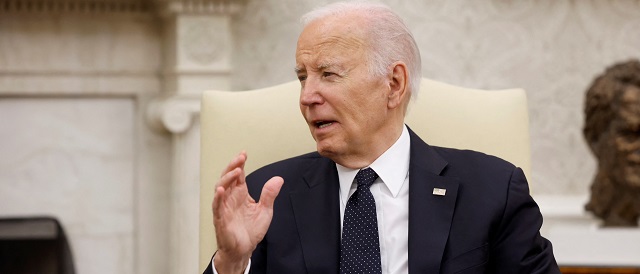
 Censorship Industrial Complex2 days ago
Censorship Industrial Complex2 days agoBiden Agencies Have Resumed Censorship Collaboration With Big Tech, Dem Senate Intel Chair Says
-

 Censorship Industrial Complex13 hours ago
Censorship Industrial Complex13 hours agoElon Musk skewers Trudeau gov’t Online Harms bill as ‘insane’ for targeting speech retroactively










